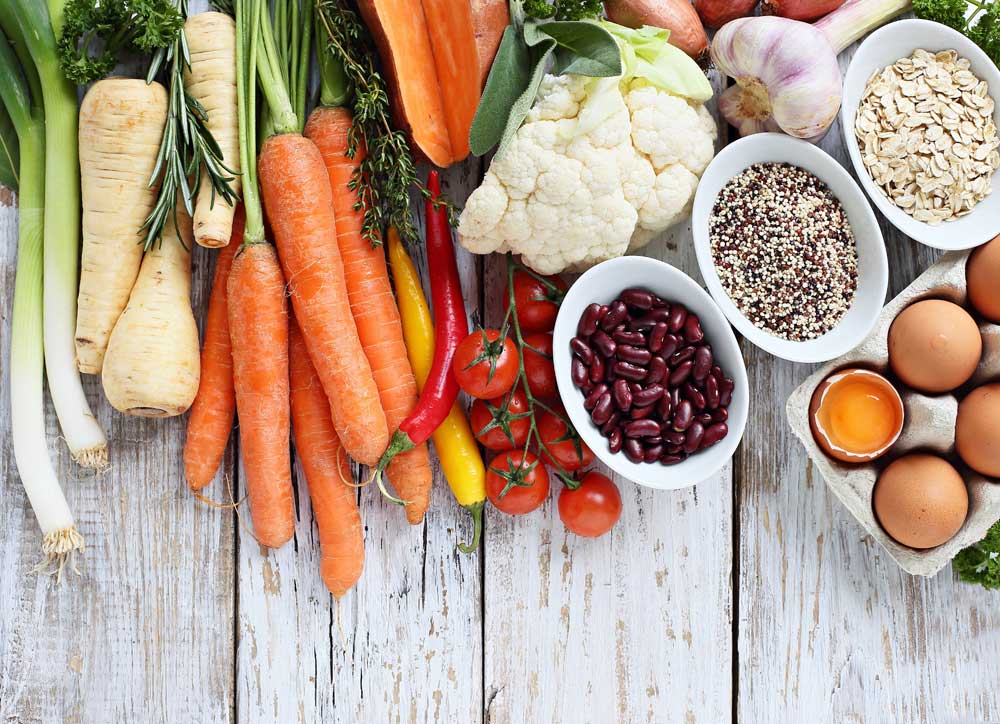Haldi Doodh, Tulsi Tea and more to ensure the winter months don’t punish your body
Winter in India is diverse. While it’s freezing cold in the far north and around the Himalayan region, the south experiences pleasant night breezes and hot sunny days. However, the onset of winters can prove to be a health hazard if you are not following a nutritious diet and a balanced lifestyle. With the seasonal change, our body becomes vulnerable to illnesses such as common cold and flu, viral infections, fever. Hence it becomes essential to keep our health in check.
The winter appetite
- Experts say that our appetites can spin out of control when the temperature falls. A decrease in sunlight may contribute to this problem.
- Shorter days and a decrease of light upset the body’s biological clock or levels of serotonin. Serotonin is the hormone that contributes to the feeling of well-being and happiness.
- Carbohydrate-rich food gives us the serotonin rush. Our body begins to crave for carbohydrate-rich foods that provide the instant heat setting up a cycle that keeps the appetite in motion.
Eating right
- Eat food that is high on whole grains and have condensed calories, such as upma or dalia.
- It will be a good idea to eat one fat product such as – gur chikki, seasame chikki, seasame balls. It will help subside the hunger and help you prevent from binge-eating.
- Opt for seasonal produce and avoid frozen/unseasonable vegetables and fruits. Winter brings in a variety of fresh seasonal produce such as – Sarson (mustard greens), carrots, methi (fenugreek leaves), green peas, tomatoes, oranges, guava. They are all sources of vitamins and minerals that should be eaten on a daily basis to strengthen your immune system.
- A cup of turmeric latte well-known as ‘haldi doodh’ is the best for immunity booster. Keep in mind that the consumption of turmeric is better in its natural form. It is not advisable to start on turmeric supplements without consulting your physician.
- Include oil-rich foods in your daily diet such as – walnuts, blanched almonds, flaxseeds, sunflower seeds, pumpkin seeds. They contain Omega 3 and help purify the skin and liver.
- Also increase portions of protein such as – egg, chicken, fish, tofu, oats, broccoli, lentils. And do not forget your daily plate of salad.
Skin care routine
- The skin turns dry and itchy in winter because of the low air humidity. The best all-round elixir is organic virgin coconut oil. Coconut oil keeps the skin moisturized, prevents dry scaly skin and strengthens the connective tissue under the skin, also coconut oil aids wrinkles.
- Self-massage your body with oil before you shower. This will lubricate your skin and give your complexion a radiant sheen lasting throughout the day.
- Shower with lukewarm water and use a mild moisturizing soap bar.
- Invest in a pot of Vaseline. It seals moisture into your skin and is the best nonsticky option that can be used throughout the year.
- Wear a cotton layer against your skin to protect against friction and then cover up with woolens.
Avoid over -sleeping
- Do not hit the snooze button. Place your alarm away from your bed to avoid over-sleeping.
- In winter, the days are shorter hence we tend to sleep more. Our body’s natural rhythm responds to the changes in light as well as fluctuating levels of brain chemicals.
- Melatonin is the hormone produced when we sleep and too much of sleep produces abnormal levels of melatonin. Excessive level of melatonin is linked to the drop of serotonin in the brain, which causes the feeling of depression in winters.
- The more we sleep, the more we want to sleep and too much of sleep affects daily productivity and a general feeling of lethargy.
- To beat the feeling of lethargy, maintain a morning exercise regimen. This will help energise you even if you are feeling lethargic.
Drink plenty of water
- Due to cold weather, it is natural not to feel thirsty as you usually do around the year. Since there is lack of moisture in the air, the dryness extracts water from your body.
- Dehydration can cause dizziness, tiredness, aches and pain hence it is important to maintain an abundant intake of water.
- A cup of tulsi tea will enhance your immune system and provide a rich supply of antioxidants and nutrients.
- Avoid beverages that further dehydrate your body.
- Drink warm or room temperature water.









It’s really important and very knowledgeable article. If you follow it you survive in case of emergency. I personally Thanks for such a nice article.
Comments are closed.